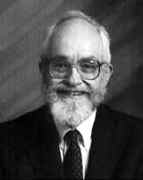Person: Browder, Felix

Felix Browder was a Russian-born American mathematician known for his work in nonlinear functional analysis.
Mathematical Profile (Excerpt):
- All three boys have become leading mathematicians and so we should begin by giving some details of their parents Earl and Raissa Browder.
- Earl Browder returned to the United States in 1929 but Raissa remained in Moscow until 1933.
- For the next sixteen years the Browders waged a legal battle to prevent her deportation.
- In 1934 their third son, William Browder, was born in New York.
- Felix is said to have read at least a book a day from the time he was five years old.
- After the award of his first degree, Browder entered Princeton where he undertook research advised by Solomon Lefschetz.
- In 1948 Browder was appointed as a C L E Moore Instructor in Mathematics at the Massachusetts Institute of Technology.
- In 1951, when his term as C L E Moore Instructor ended, Browder was appointed as an Instructor in Mathematics at Boston University.
- In April 1953 Norman Levinson testified to the Committee on Un-American Activities of the United States House of Representatives concerning Felix Browder.
- Leaving the army in 1955, Browder was appointed as an Assistant Professor of Mathematics at Brandeis University.
- After retiring from the University of Chicago, Browder became a professor at Rutgers University where he was also Vice-President for Research from 1986 to 1991.
- Felix Browder has been the dominant figure in this field since the early 1950s.
- In the theory of linear elliptic partial differential equations, the work of Felix Browder and his school went well beyond the techniques first introduced by Russian analysts in establishing completeness theorems for the eigenfunctions of nonselfadjoint elliptic differential operators.
- Browder's results on these fundamental issues remain definitive to this day.
- Felix Browder proved a general theorem on monotone operators in reflexive Banach spaces, stating that a coercive continuous monotone operator from a reflexive Banach space to its dual space is subjective.
- It is especially noteworthy that Browder's theory freed us from restrictive compactness assumptions and thereby led to a very substantial enlargement of the range of nonlinear problems to which exact analysis could be applied.
- At a time when it was not popular within mathematical circles, Browder advocated including applied mathematics at the highest levels into mathematics departments and did so successfully at Rutgers and at the University of Chicago, where he is the Max Mason Distinguished Service Award Professor Emeritus.
- Browder gave great service to the American Mathematical Society over many years.
Born 31 July 1927, Moscow, Russia. Died 10 December 2016, Princeton, New Jersey, USA.
View full biography at MacTutor
Tags relevant for this person:
Origin Russia
Thank you to the contributors under CC BY-SA 4.0! 

- Github:
-

- non-Github:
- @J-J-O'Connor
- @E-F-Robertson
References
Adapted from other CC BY-SA 4.0 Sources:
- O’Connor, John J; Robertson, Edmund F: MacTutor History of Mathematics Archive
